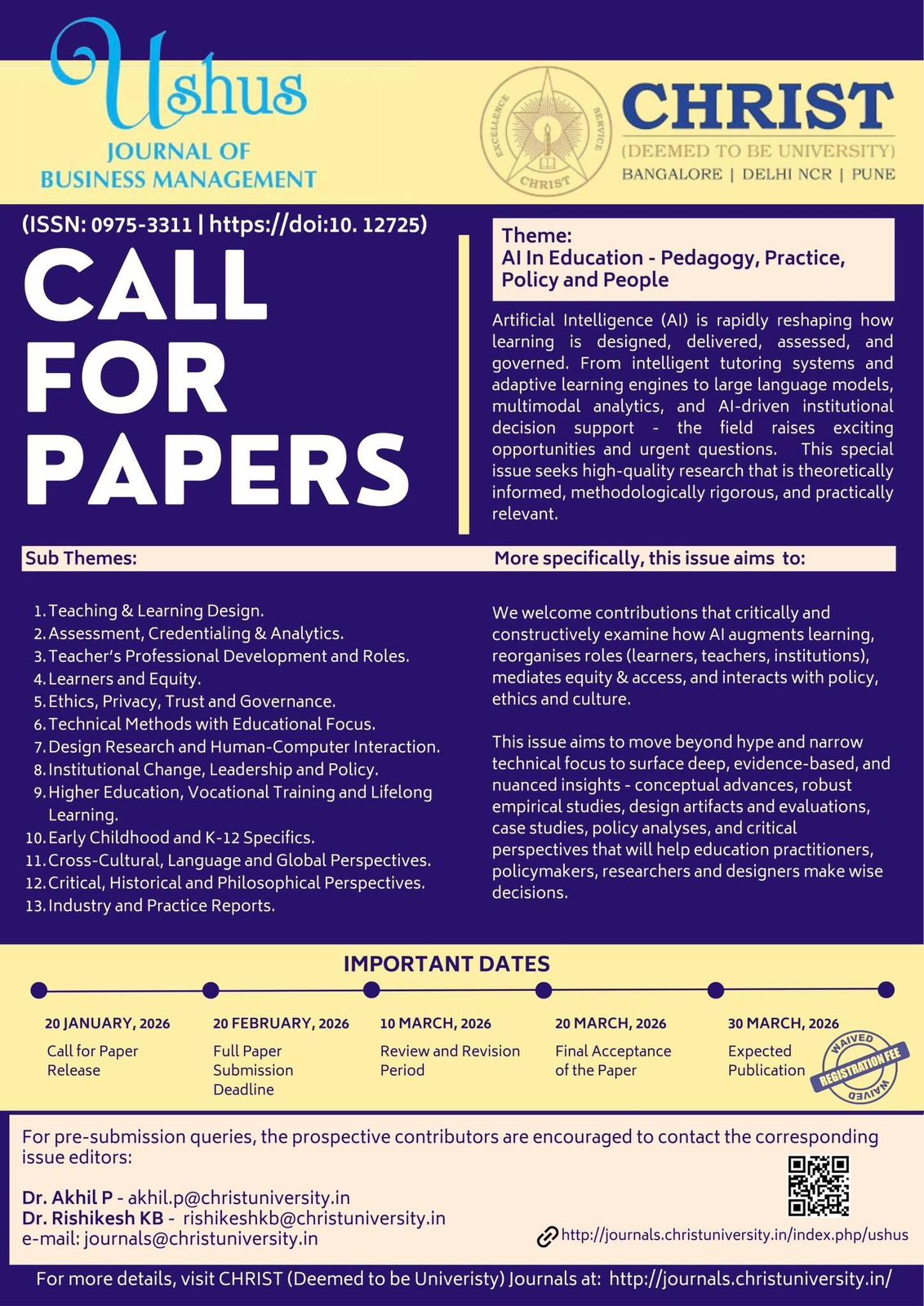A Study of Political Styles of Managers in Public & Private Organizations
DOI:
https://doi.org/10.12725/ujbm.15.2Abstract
No organization is devoid of power. The power relationship is the context for political action and encompasses the most basic issues underlying organizational politics. To understand organizational politics played by individuals occupying various positions an analysis of power, coalition, and bargaining in imperative. The study uses Kakabadse (1983) model to find out political style of Indian managers and compare managers working in private & public manufacturing organizations. 80 managers were drawn from lower and middle level management levels. Indian managers' preference of political styles indicates that the preferred styles remain the same irrespective of type of company worked for. Indian Managers are basically Team Coaches followed by Visionary style who are comfortable with criticism, confrontations and conflict. Results indicate the vast difference between what is perceived and what is put into action among Indian managers. When it came to the leadership style adopted it was found that the Participative style was the least adopted style in actual work situation. The results are discussed in the context of Indian manufacturing organizations.Downloads
Published
2009-06-10
How to Cite
Patrick, H. A. (2009). A Study of Political Styles of Managers in Public & Private Organizations. Ushus Journal of Business Management, 8(2), 9-23. https://doi.org/10.12725/ujbm.15.2
Issue
Section
Articles



